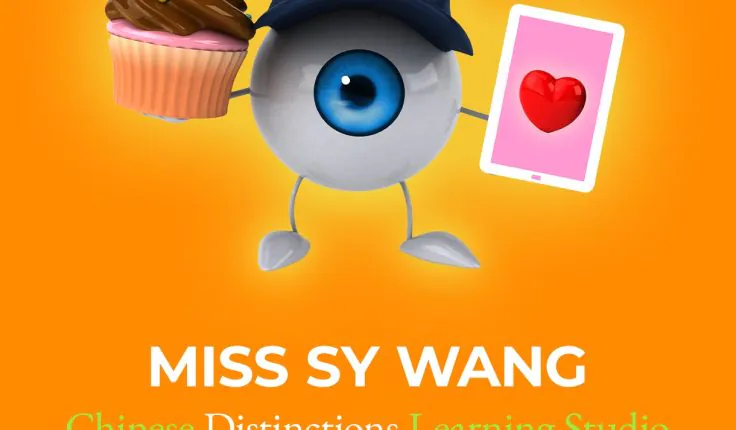Why Chinese Tuition in Singapore Is More Important Than Ever

In today’s increasingly globalized and competitive environment, the ability to communicate fluently in more than one language is a significant advantage. In Singapore, a multicultural and multilingual society, bilingualism has always been a core pillar of the education system. Among the most crucial second languages to master is Chinese — not just for cultural identity, but also for academic and professional success. As a result, Chinese tuition in Singapore has become an essential support system for students aiming to excel in the subject.
The Challenge of Learning Chinese in Singapore
While many students in Singapore learn Chinese as their second language from an early age, it is often cited as one of the more challenging subjects. Chinese is a tonal language with thousands of characters, unlike alphabet-based languages like English. Mastery requires strong memory skills, continuous practice, and cultural immersion — factors not always fully covered in classroom settings.
Students may struggle with reading comprehension, composition writing, or oral communication, especially if they come from English-speaking households. This gap in language exposure is one of the main reasons why Chinese tuition has become so popular and necessary across all educational levels — from preschool to junior college.
The Rise of Chinese Tuition Centres in Singapore
The increasing demand for extra academic support has led to a rise in the number of specialized Chinese tuition centres in Singapore. These centres provide a structured environment tailored to different learning styles and proficiencies. Whether your child is just starting to learn Chinese or preparing for major exams like the PSLE, O-Levels, or A-Levels, there is a program available to meet their needs.
Tuition centres often use proprietary teaching materials, multimedia resources, and small group classes to ensure students receive personalized attention. Many also offer enrichment programs that go beyond the school syllabus to develop a genuine interest in the language and its cultural roots.
What Makes a Good Chinese Tuition Programme?
When looking for Chinese tuition in Singapore, it’s important to consider several factors to ensure the programme aligns with your child’s learning needs and goals:
Qualified Teachers: Native speakers with MOE-approved qualifications or teaching experience in local schools are preferable.
Customized Curriculum: Good tuition centres tailor their materials to suit the specific needs of each level, focusing on vocabulary building, grammar, writing techniques, and oral fluency.
Interactive Learning: Programmes that include storytelling, role-playing, or gamified learning often yield better engagement, especially for younger learners.
Progress Tracking: Regular assessments and parent-teacher feedback ensure students are improving steadily and efficiently.
The Impact of Chinese Tuition on Academic Results
Numerous studies and testimonials from parents show that consistent tuition significantly improves a student’s Chinese language performance. Many students who once dreaded the subject become more confident and even begin to enjoy it.
At the primary level, Chinese tuition helps build a strong foundation, ensuring students can cope with higher-level content as they progress. At the secondary and JC levels, where comprehension and essay writing become more complex, tuition provides strategies and techniques to tackle exams more effectively. In short, it’s not just about rote memorization — it’s about understanding the language deeply and applying it contextually.
Online vs. In-Person Tuition: What’s Best?
With the rise of digital learning, many Chinese tuition Singapore providers now offer online classes. These are especially helpful for busy families or students who prefer learning from the comfort of home. Online platforms can be just as effective, especially if they include live lessons, interactive tools, and immediate feedback.
However, some students may benefit more from face-to-face interactions, where physical presence encourages focus and allows tutors to better assess body language and engagement levels. Ultimately, the choice between online and in-person tuition should depend on your child’s learning preferences and schedule.
Investing in the Future
Mastering Chinese opens up a world of opportunities — not just academically, but professionally and culturally. As China continues to play a major role in global economics and politics, being fluent in Chinese gives Singaporean students a powerful edge in the job market.
Investing in Chinese tuition in Singapore is not just about passing exams; it’s about empowering children with the skills and confidence to succeed in a bilingual environment and thrive in the global arena.
Final Thoughts
Chinese may be challenging, but with the right support, it is entirely manageable and even enjoyable. Whether your child needs help catching up or wants to stay ahead of the curve, Chinese tuition offers a tailored, results-driven approach to language mastery. As education continues to evolve, staying proactive and giving your child the best possible resources can make all the difference.
Let me know if you’d like a version optimized for a specific platform (e.g., WordPress, LinkedIn), or want this turned into a shorter social media post.
- TAGS :
Related Posts

Why Gourmet Pizza Catering is Just the Right Foor for Your Sydney Event
Lucas Reed / January 9, 2026



















